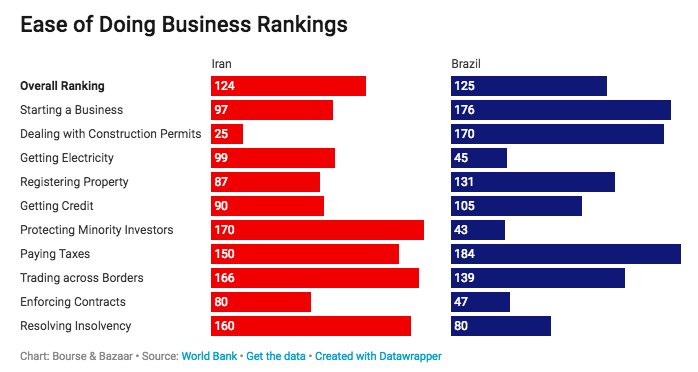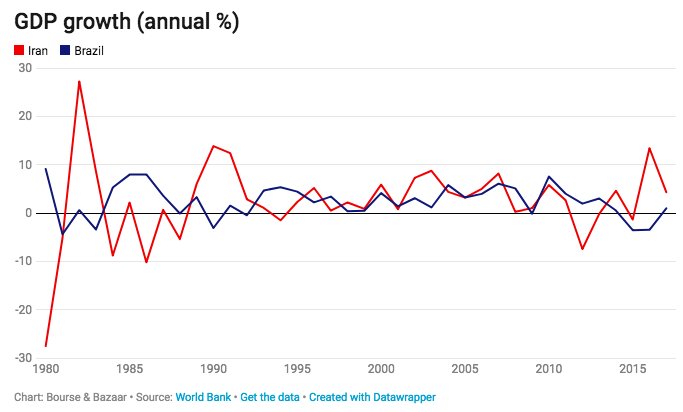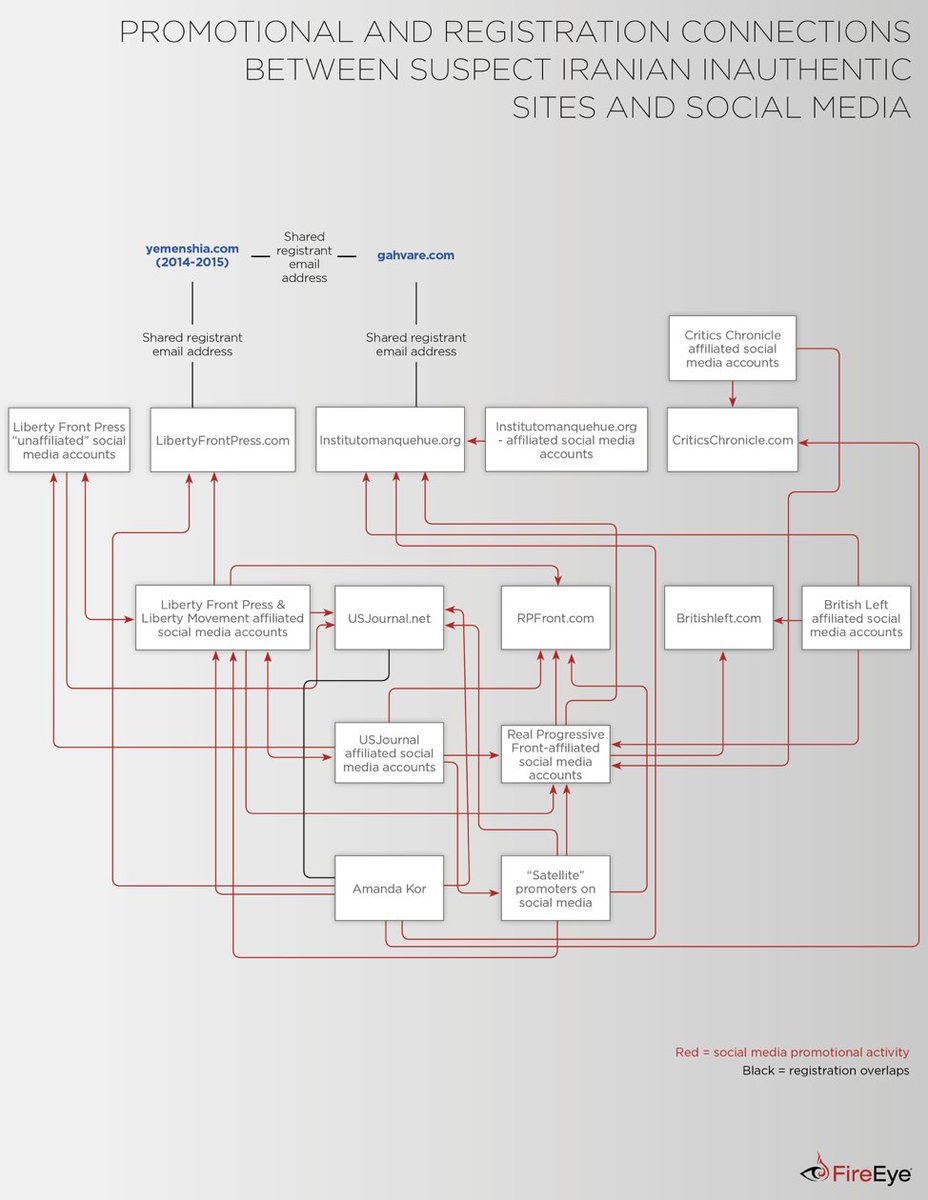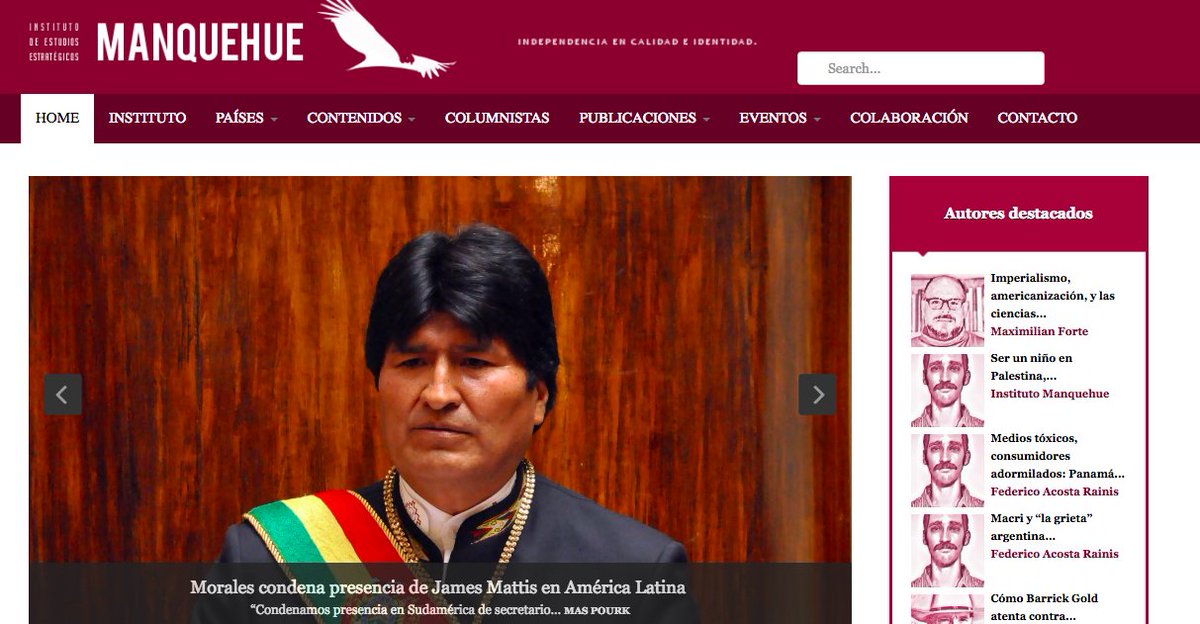THREAD: As protests continue and the rial tumbles, #Iran is increasingly seen as an economic basket case that has squandered its chance to join the ranks of the #BRICs. Here are 7 charts that challenge that view.
bourseandbazaar.com/articles/2018/…
bourseandbazaar.com/articles/2018/…
Back in January, I told @folha reporter @DiogoBercito that I saw parallels between the Brazilian protests that have been running since 2014 and those in Iran. In both contexts you hear calls to overthrow the government.
www1.folha.uol.com.br/mundo/2018/01/…
www1.folha.uol.com.br/mundo/2018/01/…
This is the same reaction to the same macroeconomic failures. The frustrated cry of the Iranian protestor is the same cry as that of the Brazilian protestor. Sure, there is some local political and economic dialect. But the language of corruption and inequality is the same.
Chart 1: Inflation
Both #Iran and #Brazil have struggled to keep inflation in check over the last 20 years. Recent rising inflation in both countries has increased the cost of living and fueled protests over economic mismanagement.
Both #Iran and #Brazil have struggled to keep inflation in check over the last 20 years. Recent rising inflation in both countries has increased the cost of living and fueled protests over economic mismanagement.

Chart 2: Unemployment
#Brazil has typically outperformed Iran in generating jobs, but in the last few years unemployment has risen sharply, converging with the rate in #Iran. A lack of jobs has been a primary driver of protests in both countries.
#Brazil has typically outperformed Iran in generating jobs, but in the last few years unemployment has risen sharply, converging with the rate in #Iran. A lack of jobs has been a primary driver of protests in both countries.

Chart 3: Ease of Doing Business Rankings
U.S. officials like to describe #Iran as a near impossible place to do business. But Iran actually ranks one place higher than #Brazil in the @WorldBank's Doing Business Rankings (at a dismal 124). Both countries have rampant corruption.
U.S. officials like to describe #Iran as a near impossible place to do business. But Iran actually ranks one place higher than #Brazil in the @WorldBank's Doing Business Rankings (at a dismal 124). Both countries have rampant corruption.

Chart 4: FDI
Despite its own difficult business environment, #Brazil has attracted 25 times net FDI as #Iran since 1980. Iran missed out on the late-90s and post-financial crisis emerging markets booms as sanctions laws were tightened in 1996 and 2008.
Despite its own difficult business environment, #Brazil has attracted 25 times net FDI as #Iran since 1980. Iran missed out on the late-90s and post-financial crisis emerging markets booms as sanctions laws were tightened in 1996 and 2008.

Chart 5: Growth
However, missing out on FDI has not made #Iran a growth laggard. Iran and Brazil have the *exact same* average annual GDP growth since 1980: 2.54% The key difference is that Iran's growth has been more volatile as it is tied to the price of oil.
However, missing out on FDI has not made #Iran a growth laggard. Iran and Brazil have the *exact same* average annual GDP growth since 1980: 2.54% The key difference is that Iran's growth has been more volatile as it is tied to the price of oil.

Chart 6: Debt-Fueled Growth
#Iran has oil, but #Brazil's has debt. The recourse to bond markets and IMF loans has allowed Brazil to reduce economic volatility and soften recessions. While Iran’s oil buyers can be fickle, creditors are always ready to offer Brazil more financing.
#Iran has oil, but #Brazil's has debt. The recourse to bond markets and IMF loans has allowed Brazil to reduce economic volatility and soften recessions. While Iran’s oil buyers can be fickle, creditors are always ready to offer Brazil more financing.

Chart 7: GDP per Capita
#Iran and #Brazil have seen similar overall levels of economic growth and standards of living, as measured by purchasing power, have likewise improved at a similar rate. But this is all the more remarkable given extra tools Brazil has had at its disposal.
#Iran and #Brazil have seen similar overall levels of economic growth and standards of living, as measured by purchasing power, have likewise improved at a similar rate. But this is all the more remarkable given extra tools Brazil has had at its disposal.

What is the lesson? Governments of very different political persuasions routinely fail to solve the same fundamental challenges of economic development. This is because economic growth is difficult to achieve, harder to sustain, and insufficient to improve living standards.
In this context, what's most unique about the crisis in Iran is not the economic reality, but the political reaction. Despite the clear parallels between Brazil and Iran, we do not see foreign powers seeking regime change to alleviate the frustrations of the Brazilian people.
tl;dr we have a distorted view of Iran's economy because we are relying on political context to understand economic issues. We should be looking at the data first. Iran and the BRICs are in the same boat. More here:
bourseandbazaar.com/articles/2018/…
bourseandbazaar.com/articles/2018/…
• • •
Missing some Tweet in this thread? You can try to
force a refresh








